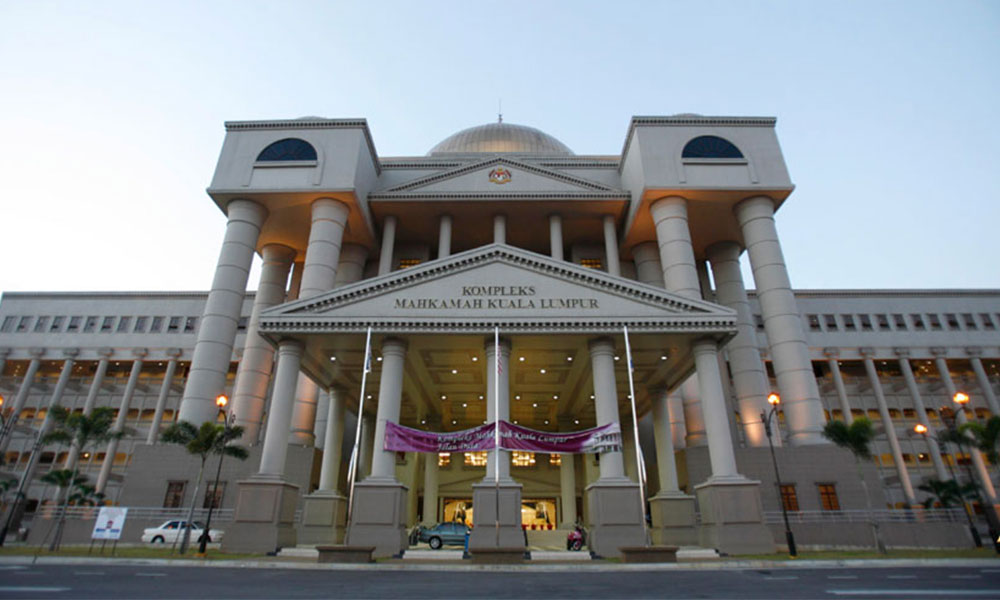The Dr Mahathir Mohamad-led cabinet allowed Christians in Malaysia to conditionally use of the word “Allah” in May 1986.
However, seven months later, officials of a division in the Home Ministry then issued a directive imposing a total ban on the word in Bahasa Malaysia editions of Christian religious publications.
This was pointed out in the written judgment for the landmark decision by the Kuala Lumpur High Court in a legal action over the right to use the word for educational purposes by a Melanau Christian, Jill Ireland.
On March 10, Court of Appeal judge Nor Bee Ariffin, sitting in the capacity of a High Court judge, allowed the judicial review leave application by Ireland.
The judge ruled that the government has erred in issuing the 1986 directive banning the use of the word "Allah" by Christians and that Ireland, a Sarawakian, had the right to use the word “Allah” for religious and educational purposes.
Ireland had initially instituted the action for the return of Malay-language Christian CDs and religious books seized by customs officers at the Kuala Lumpur Low-Cost Terminal (LCCT) in Sepang in 2008.
She had then just touched down in Malaysia via a flight from Indonesia.
However, following a court order to have the items returned to the clerk in 2015, her legal battle became one seeking a court declaration for the right to use the word “Allah”.
In her written grounds of judgment, Nor Bee noted that a memo from the then deputy prime minister Abdul Ghafar Baba in 1986 indicated that the cabinet then had permitted conditional use of the word “Allah” by Bahasa Malaysia Christian publications.
The judge made reference to a memo by Ghafar dated May 16 that year which stipulated that Christian publications could use the word “Allah” and three other words with conditions.
The other three words are “Kaabah”, Baitullah”, and “Solat”.
The memo, bearing Ghafar’s signature, stated that the four words cannot be used by non-Islamic religious publications except on the condition that the front covers of these publications state “Untuk agama Kristian” (For The Christian Religion).

Nor Bee noted that a separate letter from then-premier Mahathir endorsed the content of Ghafar’s memo, thus inferring this was a cabinet’s policy decision.
The judge pointed out that the Home Ministry’s publication control division, however, issued a letter dated December 1986 to all Christian religious publishers nationwide which diverged from the cabinet policy.
'Serious doubt'
She was referring to the December letter signed by the then ministry's chief secretary Hassan Jantan which stated that the four words cannot be used at all by Bahasa Malaysia Christian publications in Malaysia.
The judge noted that the said ministry’s division letter did not even refer to the condition of “Untuk Agama Kristian” that needed to be present on the front covers of Bahasa Malaysia Christian publications before the four words could be used in them.
“In the circumstances, the impugned directive then must mirror the cabinet’s policy decision. The question is whether it did?
“Upon painstakingly perusing through all evidence adduced in this proceedings, I entertained serious doubt whether the cabinet’s policy decision was incorporated in the impugned directive as there appears to be marked discrepancies between the cabinet’s policy decision and the impugned directive,” Nor Bee said.
“In my view, on a true and proper construction of the PM’s (Mahathir) letter and the DPM’s (Ghafar) note, the cabinet’s policy decision did not impose a total ban on the four words “Allah”, “Kaabah”, “Baitullah” and “Solat”.
“The impugned directive did,” the judge said.
“For reasons best known only to the Publication Control Division of the Ministry of Home Affairs, and which remains unexplained, the clear words on the DPM’s note with regard to the use of the four words that ought to have been taken into account was wholly disregarded and substituted with the imposition of a total prohibition,” she said.
“There is no evidence to the effect that there were changes brought about to the cabinet’s policy decision or that the cabinet had endorsed the changes made to the decision as contained in the impugned directives,” she said.
The Home Minister and the government have appealed to the Court of Appeal against the High Court verdict. - Mkini




No comments:
Post a Comment
Note: Only a member of this blog may post a comment.